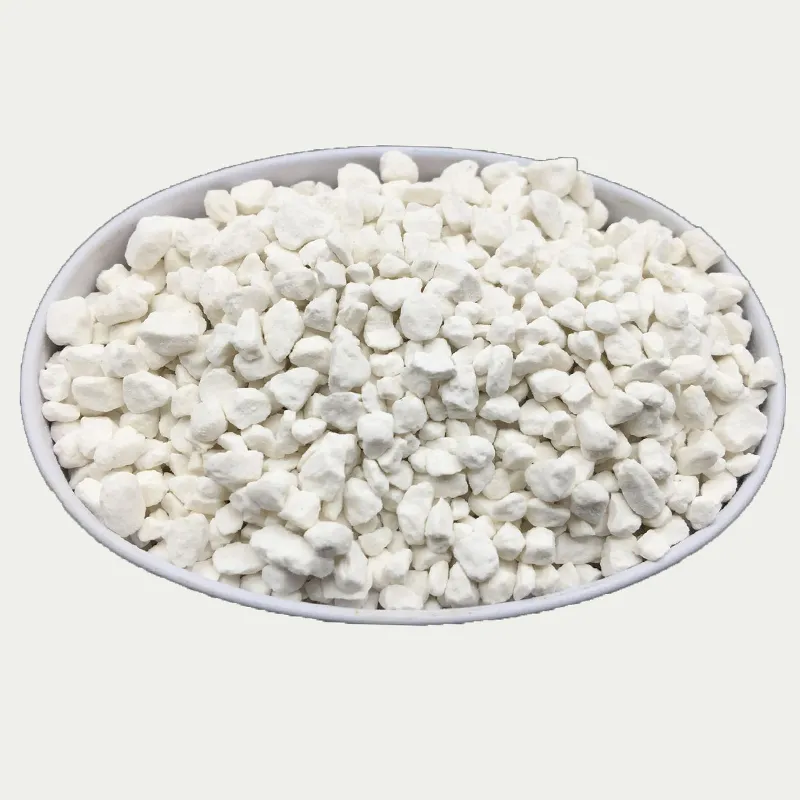
Nov . 26, 2024 10:00 Back to list
The Role of Potash Fertilizer in Enhancing Crop Yield and Soil Health
Potash fertilizer, a key source of potassium (K), plays a crucial role in agriculture by improving both crop yield and soil health. As one of the three primary macronutrients, along with nitrogen and phosphorus, potassium is vital for plant growth, helping to optimize various physiological processes. Its benefits are far-reaching, affecting not only the productivity of crops but also the long-term sustainability of the soil.

Potash Fertilizer: The Key to Healthy Crops
Potassium is involved in numerous essential functions within plants. It helps regulate water movement, enzyme activation, photosynthesis, and the synthesis of proteins and starches. Adequate potassium levels promote stronger, more resilient plants that are better equipped to handle environmental stresses such as drought, diseases, and pests. This is particularly important in regions where crops face fluctuating weather conditions or high pest pressure.
By ensuring that crops have enough potassium, potash based fertilizer helps increase overall yield. Potassium encourages better root development, enabling plants to access nutrients and water more efficiently from the soil. Healthy roots also contribute to stronger stems and leaves, leading to improved overall plant structure and vigor.
Improving Soil Health through Potash Fertilizer
In addition to its direct benefits on plant growth, potash agriculture fertilizer also contributes to soil health. Potassium helps maintain optimal soil pH, which is crucial for nutrient availability. Potash assists in the absorption of other essential nutrients like nitrogen and phosphorus, promoting a more balanced nutrient profile in the soil. This can lead to improved soil structure and increased microbial activity, both of which are beneficial for long-term soil fertility.
The application of potash also supports soil aggregation, which is the process where soil particles bind together to form aggregates. Well-aggregated soil has better water retention, reduces erosion, and increases aeration, all of which help improve the conditions for plant growth. This leads to more efficient use of water and nutrients, creating a healthier growing environment for crops.
Potash and Drought Resistance
One of the most significant advantages of potash is its ability to improve drought resistance in plants. Potassium plays a crucial role in regulating water movement within plant cells, helping them maintain turgor pressure, or the pressure that keeps cells firm. With adequate potassium, plants can reduce water loss through transpiration and better manage their water resources. This is especially important in regions prone to water scarcity or during dry spells, where water efficiency is critical for maintaining crop yields.
By enhancing a plant’s ability to conserve water, potash helps mitigate the negative effects of drought, ensuring that crops remain productive even in less-than-ideal conditions. This ability to withstand environmental stress not only improves yield but also reduces the risks of crop failure, providing farmers with more reliable harvests.
Potash Fertilizer and Pest and Disease Resistance
Another benefit of potash fertilizer is its role in enhancing plant resistance to pests and diseases. Potassium strengthens plant cell walls, making them less susceptible to pathogen attacks. It also improves the overall health and immune system of plants, making them more resilient to harmful insects and fungal diseases.
Potash also helps plants synthesize proteins that are essential for creating natural defense mechanisms. These defense proteins are crucial in protecting plants from bacterial and viral infections. As a result, plants that receive proper potassium nutrition through potash fertilizers are often better able to fight off threats, leading to healthier crops and reduced reliance on chemical pesticides.
Sustainability and Environmental Impact of Potash Fertilizer
The sustainable use of potash fertilizer is an essential factor in ensuring that its benefits are long-lasting. While potash can enhance crop yield and soil health, over-application can lead to environmental issues such as nutrient runoff, soil acidification, and water pollution. As such, it is vital for farmers to apply potash fertilizers in the right amounts, based on soil tests and crop requirements.
Modern agricultural practices, including precision farming, have made it easier to apply fertilizers in a more controlled and efficient manner. Using technology like soil sensors and nutrient management software, farmers can optimize the use of potash and other fertilizers, ensuring that crops receive the nutrients they need without causing harm to the environment.
By adhering to best practices and applying potash fertilizers judiciously, farmers can enjoy enhanced yields and healthier soils, while also contributing to more sustainable farming practices that protect the environment for future generations.
-
Organic Pepper Fertilizer – Sustainable Growth for Healthier Crops and Soils
NewsNov.25,2025
-
Sustainable Growth with Organic Phosphate Fertilizer | Benefits & Innovations
NewsNov.24,2025
-
Organic Phosphorus and Potassium Fertilizer: Sustainable Soil Nutrition & Global Impact
NewsNov.24,2025
-
Organic Phosphorus Fertilizer: Sustainable Nutrient Solutions for Modern Agriculture
NewsNov.23,2025
-
Sustainable Growth with Organic Phosphorus Plant Fertilizer | HH Fertilizer
NewsNov.23,2025
-
Organic Plant Meal Fertilizer for Sustainable Agriculture – Benefits & Innovations
NewsNov.22,2025
